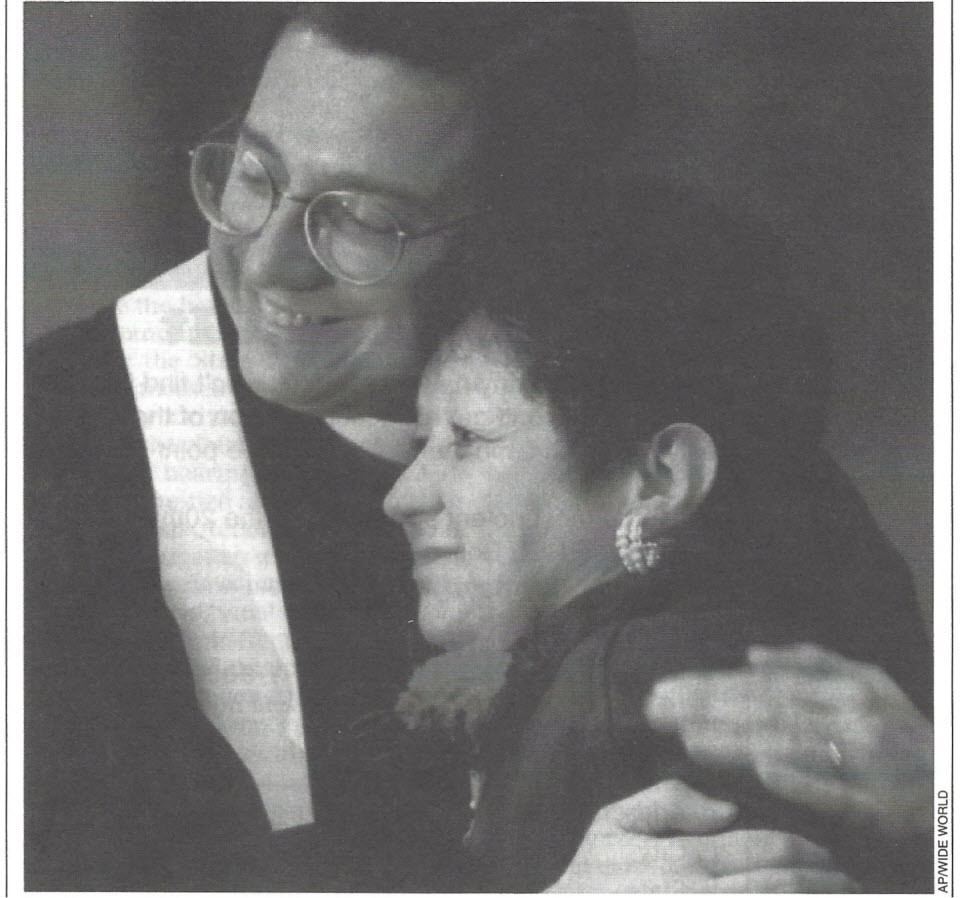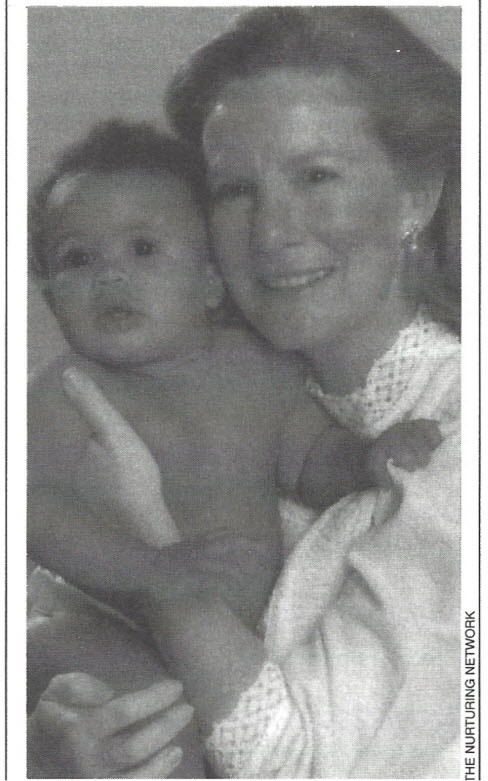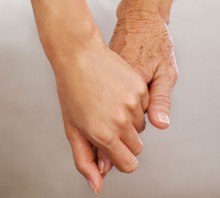
Choosing Life, With a Little Help
The Washington Times Article - By Aimee Howd
A grass-roots movement of practical compassion now is assisting desperate women by showing them that a crisis pregnancy can have positive solutions. Here's how it works.

She didn't fit either stereotype: She wasn't a poor teenager on the verge of becoming another chronic welfare mother, and she wasn't a radical feminist out to celebrate her right to control her own womb.
But 27-year-old Monica was pregnant. Her fledgling career in a major Northwest company was at stake, and the father of her child, a coworker, planned to marry someone else. Her father and brothers had been through a time of hardship and she couldn't bear to call on them for help. Monica believed she had no other option but the abortion the law guaranteed her as the simple, onetime, relatively low-cost solution to her dilemma. She made several appointments to terminate her pregnancy but canceled every time. She went to a local crisis pregnancy center and they handed her a brochure on the Nurturing Network. Still wavering on her decision, Monica called in desperation.
She became one of the 12,000 women the Nurturing Network has helped to continue the lives of their unborn children without sacrificing education and career development. The network has 22,000 volunteers throughout employment, medical, educational, counseling and residential sectors. Members gave her emotional support, affordable housing, a sympathetic doctor and even covered her first two months of rent and child care while she made the transition into parenthood.
Apart from such an approach, says corporate executive Mary Cunningham Agee who founded the network 14 years ago, ''A woman facing a crisis pregnancy does not feel the 'freedom of choice'; she feels that abortion is her only choice!'
Agee says her heart was touched by women who felt abortion was their only choice after she lost her own child in a traumatic miscarriage, so she solicited the cooperation of several abortion clinics to connect her with clients who were willing to talk about their experiences. Ninety-one out of 100 women said they would have chosen "a positive alternative" had one been available.
"What would that alternative have looked like?" she asked. "Most of what they were describing were the most basic of resources;' says Agee: career maintenance, freedom to continue their education and secure emotional support. "But when you are in crisis you can't put those pieces together for yourself."
Her network is part of a movement that steps amid the political mine.fields surrounding "the choice" legalized 26 years ago in Roe vs. Wade. Since that Supreme Court decision at least 38 million legal abortions have been per- formed in the United States, and the pro-life vs. pro-choice warfare has raged without resolution in the halls of Congress, along the campaign trail and on sidewalks outside abortion clinics.
While the spotlights have focused on sensational attempts to force an acknowledgment of life from conception or the countering stream of right- to-choose rhetoric, Agee and others quietly have rolled up their sleeves in the shadows to offer practical compassion to one woman at a time.
"What leads a woman to choose abortion?" they ask. And supposing the abortion is performed without immediate complications, wh at are its long term effects on the woman's life?
at are its long term effects on the woman's life?
About 22 percent of pregnant women worldwide terminate their pregnancies every year, according to the Alan Guttmacher Institute, or AGI, the research arm of Planned Parent-hood which owns the largest chain of abortion clinics in the United States. AGI's literature says that in most cases abortion is simply the logical result of unplanned pregnancy. Abortion might be slightly unnerving for women with poor coping skills, AGI concludes, but not nearly so traumatic as being forced to give birth to an unwanted child.
"The vast majority of women having abortions in the first trimester have no serious psychological consequences:' claims psychologist Henry David. He served on the American Psychological Association, or APA, task force that reviewed the medical literature claiming the greatest abortion-related trauma occurs in the actual decision-making process. "There may be grief, there may be sadness," says David, "but it lasts a short time."
David considers abortion a positive alternative for many women in crisis, and for their children as well. He bolsters his case with studies showing that being born to a woman who has been denied abortion is "not a good indicator for psychiatric development!' But others say that an unplanned pregnancy does not have to end in an unwanted child: Often it is a woman's life situation, not the pregnancy, that is the problem.
Olivia Gans travels throughout the world as director of American Victims of Abortion, or AVA, a league of women and families of women who have had abortions but believe they made the wrong choice and want to encourage others to choose life. Gans had an abortion when she was 22, unwed and unemployed. She says her own experience and the stories she has heard from thousands of women internationally confirm what studies have shown. "Rather than understanding that the circumstances surrounding the pregnancy may be complex and troublesome, there is this sense that being pregnant itself is the problem - not that she may need a better job, or a better place to live, or more support from the baby's father, or more communication with her family:' says Gans.
AVA is just one of 29 national organizations - most founded in the last two decades - to help parents deal with a desperate abortion's aftermath. Most of them speak of seeking healing from what they call post-abortion syndrome, or PAS, as a form of post traumatic stress syndrome which often shows up years after the event and is characterized by symptoms such as acute guilt, withdrawal and self-hatred.
Former surgeon general C. Everett Koop's 1987 literature review of the effects of abortion on women's health concluded only that available data on abortion's psychological effects was inconclusive. The long-term, methodologically sound national study his report called for never has been undertaken. Perhaps because, as he acknowledged, even establishing an appropriate control group to determine the pervasiveness of problems for which anecdotal evidence is abundant is difficult, since as many as half of the women who have undergone abortions are likely to deny having done so.
But, again, as the public-health debate rages on concerning how many women suffer and how severely, it is clear that many individuals need help. The APA admits that certain women those terminating a wanted pregnancy for medical reasons, those who lack support from their parents or partner in the decision to abort, those ambivalent about aborting and those with religious values that oppose abortion - are at increased risk for long-term negative psychological effects.
Attorney Tom Smith, who has represented about a dozen clients seeking damages from abortion clinics, writes: "Minors are the group most likely to be ambivalent; some fail to involve their parents and represent 20 percent of abortions. Women having repeat procedures represent 47 percent of all abortions. Those with strong religious convictions are a significant percentage of the 30 percent Roman Catholic women getting abortions and 16 percent who consider themselves born-again Christians. Sixty percent of the women who get abortions are never married. When giving their reasons for having an abortion, SO percent say they do not want to be a single parent or they are having problems with their husband or partner, suggesting a lack of familial support." Thus, even accounting for overlap, Smith reasons, the majority of women seeking abortions may be at risk for psychological damage.
Whatever their diagnoses, suffering women no doubt know their own pain best. And they are flocking to community-based crisis-pregnancy centers around the country - including 1,000 centers associated with the two largest pregnancy-center affiliations, Heart- beat and CareNet. National Right to Life estimates that 3,000 mother helping facilities around the nation are dedicated to providing practical compassion by offering women alternatives to abortion.
Most provide free pregnancy tests, counseling and material supplies for pregnant women. Others also offer job training and parenting classes. For women who discovered such help too late and have aborted in desperation, the centers offer support groups and understanding for their mourning.
Serrin Foster, president of Feminists for Life, is finding common ground between such normally polarized organizations as the conservative Heritage Foundation and the American Civil Liberties Union. "Women deserve better than abortion," she explains. "We need to have people from both sides of the debate ask what can be done systematically to eliminate the long list of reasons that drive women to abortion."
And quietly, one life at a time, organizations from Agee's vast Nurturing Network to tiny community helping centers are making sure women's choices aren't limited to abortion. CareNet's ever-growing affiliates served 200,000 women last year. Donna Warner, who is director of center development for CareNet, says, "The strength of this particular movement is far beyond politics. It is one neighbor reaching out to another to get these needs met!'
Reprinted with permission of Insight. Copyright New World Communication, Inc. All rights reserved
“As I considered with far greater empathy how women who face the crisis of an unplanned pregnancy alone must feel when they are believe that they have no other 'choice' than abortion, I could more fully understand that it is truly not enough to say that we are 'for life' unless we are prepared to help provide the practical means to support life."
~ Mary Cunningham Agee

There are so many people looking for a meaningful, non-confrontational expression of what they believe to be right. The Nurturing Network offers them an effective means for doing that.

“We think of you often, but particularly during these months that represent the ‘anniversary’ of beginning our relationship with TNN and of becoming parents. Maggie continues to be a blessing beyond measure. She is the love of our lives as is her brother, Tom. You are forever in our thoughts and prayers.”
~ Margaret and Tom - Adoptive Parents
(TNN Donors)
Ms. Agee has demonstrated that there exists a vast common ground on which all sides can agree and move beyond political differences in order to provide practical compassion to women and children at risk.
"Serrin Foster, President of Feminists for Life, is finding common ground between such normally polarized organizations as the conservative Heritage Foundation and the American Civil Liberties Union. 'Women deserve better than abortion,' she explains. "We need to have people from both sides of the debate ask what can be done systematically to eliminate the long list of reasons that drive women to abortion."
~ Insight Magazine
“The valuable work you do for the women of our country and the world is commendable. I am encouraged by your constant care for the well-being of all women."
~ Non-Profit Executive Director
(TNN Professional Member)

"And quietly, one life at a time, organizations from Agee's vast Nurturing Network to tiny community helping centers are making sure women's choices aren't limited to abortion. CareNet's ever-growing affiliates served 200,000 women last year. Donna Warner, who is director of center development for CareNet, says,'The strength of this particular movement is far beyond politics. It is one neighbor reaching out to another to get these needs met."
~ Insight Magazine
“Serving on the Board of Directors of the Nurturing Network has given me a profound respect for the awesome courage of TNN’s clients and a deep appreciation for your wisdom in recognizing how powerful a nationwide Network could be.”
~Attorney at Law
(TNN Board Member and Donor)
"But, again, as the public-health debate rages on concerning how many women suffer and how severely, it is clear that many individuals need help. The APA admits that certain women those terminating a wanted pregnancy for medical reasons, those who lack support from their parents or partner in the decision to abort, those ambivalent about aborting and those with religious values that oppose abortion - are at increased risk for long-term negative psychological effects."
~ Insight Magazine
~ Mary Cunningham Agee

